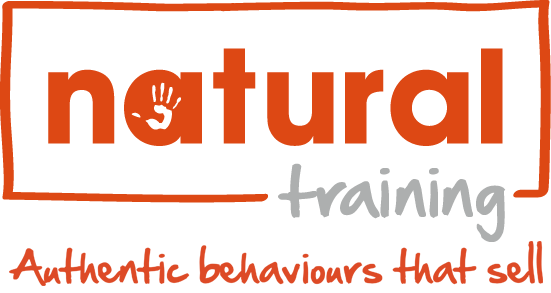Now for Part 2 of ‘Referral Selling – your modern day sales weapon’. For Part 1 (DIRECT), please click here
INDIRECT (helping people to think differently)
Unlike the direct approach, the indirect referral request represents a whole range of alternative routes – all of which arrive at the same destination: solid and effective referrals. The idea behind this approach is to put steps in place that help people think differently about you, your brand and your service.
The indirect referral is the big growth area in referral selling. Just ask Facebook’s Mark Zuckerberg! Facebook now uses your endorsements to sell third party products. Press ‘like’ on Good year tyres? Then expect your face to be part of an ad selling tyres to your friends. One of our great clients at Natural Training is a prominent London-based real estate agent – it receives more leads via Facebook than any other means! And it’s free!
Right now, companies across the world are asking customers to like them, recommend them, blog about them, poke them, write songs about them and gather a flash mob for them. This is all indirect referral selling – it’s big, it’s real and various versions of it will help drive leads to you and make you money.
HERE’S AN EXAMPLE
Two weeks ago, I was sitting at the kitchen table, watching my young kids think of various creative angles to win a Nintendo DS in their latest competition. They had to find a code, buy a game, match the code to some other thing in the game, go online, input the code and probably about another 10 things that I didn’t understand, but they loved. Initially, I was angry that a corporation was brain-washing my kids. Then I realised it’s no different to what I used to do – they are simply being caught up in a slightly more evolved indirect referral programme! When I was a kid, I remember sitting at dinner one day and reading details of a competition on the back of a Heinz Tomato Ketchup bottle (my brother had it on everything so it was a permanent fixture on the table). I was staring at it thinking, “We need to enter this, because all we had to do was write in 30 words why we liked it so much.” Simple. So we did and guess what? We won. The prize was a huge supply of Tomato Ketchup! So, what’s the relevance here? At the time, I couldn’t work out why they would be giving all that amazing Tomato Ketchup away, but it was about changing the way we thought about the brand. We were tasked with really thinking about the words we would use to describe Tomato Ketchup – because we only had 30 words and it had to go on the back of the label! Then we went to find an envelope and write the address. Then we went to the post office, got a stamp and sent it off. Commitment, perseverance, loyalty – all for a bottle of sauce!Heinz managed to turn us from normal consumers of their product into champions. No prizes for guessing what my brother and I talked about to friends for days afterwards. I still remember it like it was yesterday!
The important take away here is that Heinz shifted the way we interacted with the brand – and we couldn’t wait to tell (or refer) as many people as we could.
Many companies make use of indirect referrals to get the same response – they want customers to champion their work and share their passion with others. That’s when they truly work.
YOUR OWN INDIRECT REFERRAL SCHEME – CASE STUDIES
In sales, you probably can’t impact the way your company goes to market, presents the brand on LinkedIn or Facebook, or becomes viral on Twitter. (No harm to suggest it, but you have selling to do, right?) So you need to work out your own low cost techniques, and case studies are perfect for this.
Case studies are stories about how customers have benefited from hanging out with you. Most of the case studies we see at Natural Training are boring, outdated, and a bit insincere. These need a fresh look, especially if they are to generate the kind of referral results that we have been talking about already in this chapter. Just as Heinz did so brilliantly, companies need to let their customers own the case study and drive the content.
Insider Tip: Make your case studies and testimonials customer-centric as opposed to making them all about your company. The key to the success lies in helping the client to feel good about themselves. And, perhaps even more importantly, look good.
To download a SAMPLE CLIENT CASE STUDY TEMPLATE to help you structure your customer referrals and proof, please click here.
If you’d like to explore options for having some training for your team dedicated to Referral Selling, please give us a call on 0207 043 1582


